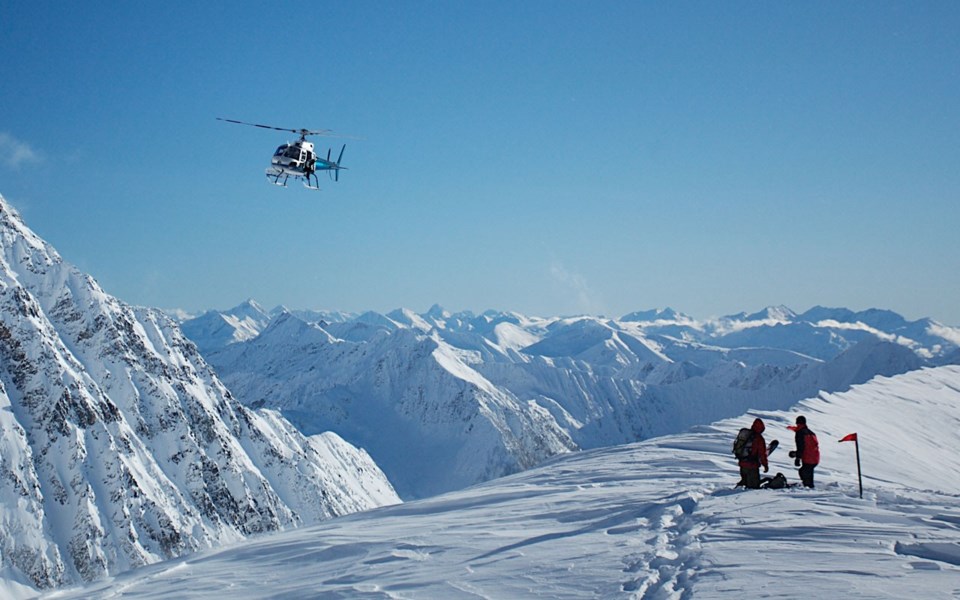B.C.'s heli-skiing and cat-skiing guides are experts when it comes to understanding avalanche safety.
A new project led by Simon Fraser University avalanche expert Pascal Haegeli aims to harness their expertise by studying where they choose to lead clients given various snow conditions.
"We're interested in better understanding the rules for how to best manage avalanche hazard when travelling in the backcountry," explained Haegeli. "We want to understand what terrain is appropriate under different avalanche conditions."
Lead guides at various B.C. heli- and cat-skiing operations are taking part. The guides carry GPS devices, which allow Haegeli and his students to overlay their coordinates on Google Maps and elevation models, giving them a "a high-resolution" picture of the lines the guides select.
Researchers also have access to "operation information," including morning avalanche hazard assessments, run lists, and the guides' raw observations.
Haegeli believes the project will allow the researchers to capture the guide's expertise in a tangible, data-driven way.
"Some of the decisions have become completely intuitive to them," explained Haegeli.
It is therefore hoped that a data-driven approach will allow the researchers to draw broad rules of thumb that can be used to improve avalanche safety.
"In the long term, we want to create tools that can help the participating operations make decisions more effectively."
Guides at seven high-end operations — including Mike Wiegele Helicopter Skiing, CMH Heli-Skiing and Monashee Powder Snowcats — are taking part, giving the researchers a good cross-section of the province's terrain and snow conditions.
"We have a fairly wide range of different operations and different snow climates and also some heli-skiing and some snow-cat skiing operations," said Haegeli.
Whistler Heli-Skiing — which boasts a 174,824-hectare tenure and has been operating since 1981 — is participating for the third year in a row.
"We've got guides that have been working for us for decades," explained Mike Sadan, general manager for Whistler Heli-Skiing. "Our guides have really gotten to know their business. So their decision-making process is of interest to researchers."
Given their desire to constantly learn and share their knowledge of avalanche hazard, the guides are enthusiastic about taking part in the project, added Sadan.
"We still have a ways to go to see how the data is going to be presented and what projects it's going to feed into," he said."But I think it's in the nature of the guides to always want to learn more, and I think it's going to help them."




